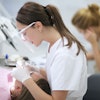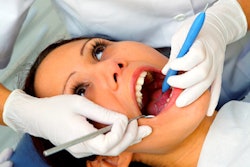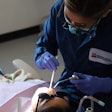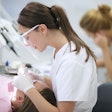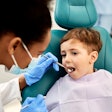
In this Second Opinion, Dr. Steven Krauss offers his response to a commentary by pediatric dentistry thought leaders in the July edition of the Journal of the American Dental Association. The commentary authors proposed five strategies to use the Medicaid program to increase oral health equity in the U.S.
This month's Journal of the American Dental Association contains a commentary by Drs. Casamassimo, Czerepak, and Lee with their proposition that certain changes to Medicaid would help poor and minority populations attain oral health equity and improve trust in government.
 Dr. Steven Krauss.
Dr. Steven Krauss.The authors stated that Medicaid will likely rely on the current fee-for-service, mostly private practice model for the foreseeable future. Their suggestions include expanding adult dental Medicaid and incentivizing providers with increased fees, tuition payback, and other financial rewards. But one proposal the authors failed to discuss is the licensing of dental therapists.
Dentists rely on a fee structure that adequately reimburses them to pay student debt obligations and the fixed costs of starting and running an office. However, the marginal costs incurred by increasing office utilization are primarily personnel.
It may be worthwhile for dentists to hire dental therapists, who command a lower salary than dentists, to treat patients on Medicaid -- even at fees that are lower than the usual, customary, and reasonable (UCR). This would assist private practices in treating poor patients in the same location as other, more affluent patients, while providing dentists with some profit as well.
However, implementing a legislative mandate that would require dental therapists to primarily treat low-income people sends a negative message and is poor public policy.
If therapists are equally qualified as dentists in the procedures they perform, why should they be treated differently? Why should we confer the message that they are different, suggesting there are two standards of care, or that they should be grateful they are being allowed to practice at all?
Dental therapists could and should be encouraged to provide care for poor communities with financial and other incentives such as tuition reimbursement and salary bonuses -- just as we suggest for dentists whose licenses have no such prerequisites. The incentives for therapists, however, would be less costly, thus necessitating a lower financial obligation for government subsidy programs.
Poor people deserve to be treated by professionals who are regarded as equal members of the healthcare team. Limiting licensure perpetuates social inequality and is a conciliatory pandering to dental boards to ease their opposition to the paradigm. Instead, persuade the best and brightest to enter the profession and reward them for public service.
You know, the same way we propose for dentists.
Dr. Steven Krauss is a pediatric dentist, dental anesthesiologist, and paramedic. He has been in private practice pediatric dentistry since 1990 and can be reached by email at [email protected].
The comments and observations expressed herein do not necessarily reflect the opinions of DrBicuspid.com, nor should they be construed as an endorsement or admonishment of any particular idea, vendor, or organization.



